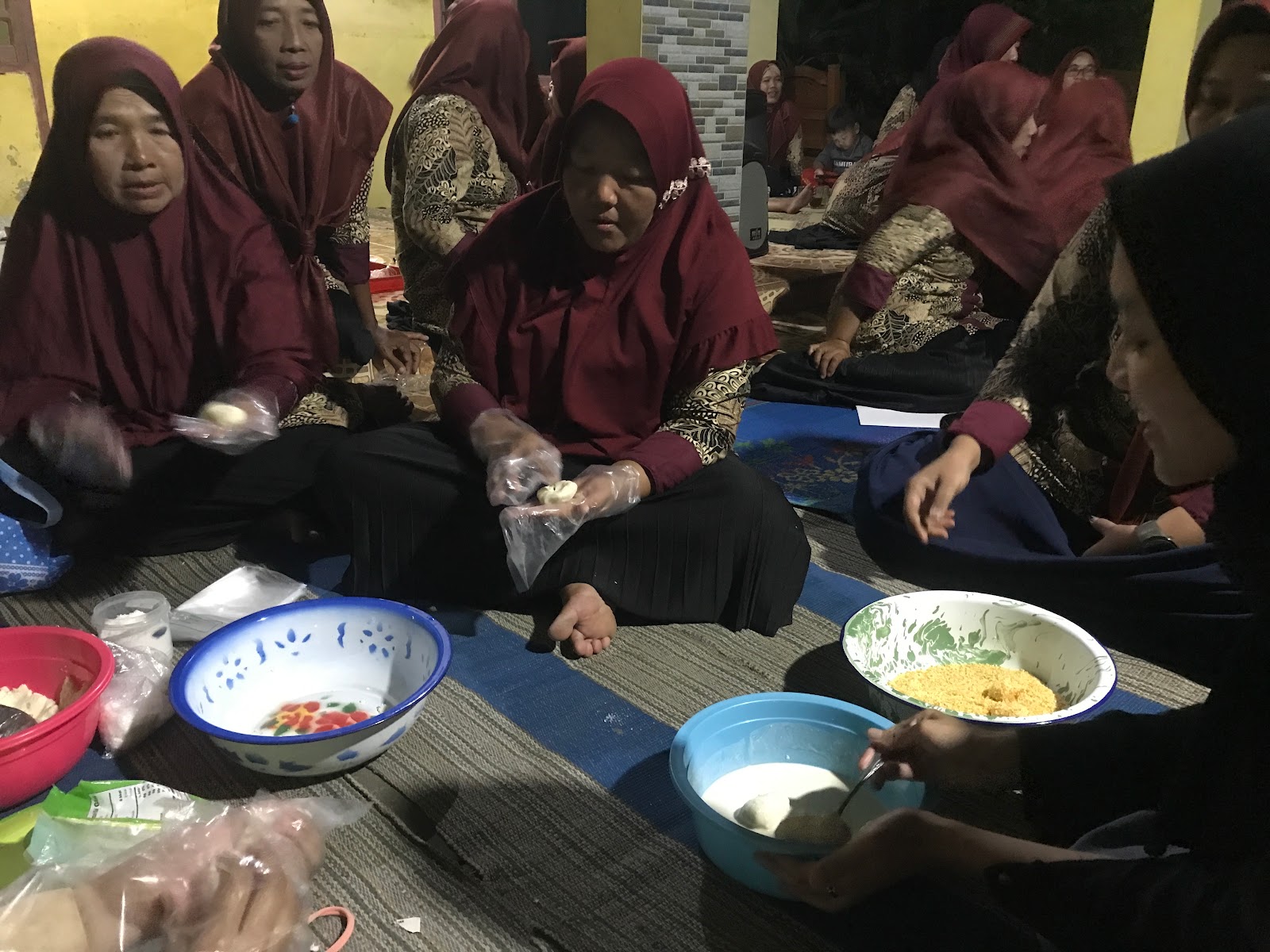UNS Agricultural Extension and Communication Study Program students carry out training activities on making frozen gethuk as an effort to develop the family economy. The activity, which was carried out in the framework of the implementation of the MBKM for the Build Village, was attended by the women of Pule Hamlet, Karangturi Village, Gondangrejo, Karanganyar. This dry land agricultural area produces much cassava, but the results are still sold in a new form without processing. Most of the people of Karangturi Village work as rice field farmers and the fields around where they live. The superior agricultural products in this village include rice, corn, cassava, lemongrass, and home garden vegetables such as turi and kelor. The MBKM activity carried out for 4 months, is related to assisting women farmer groups in Karangturi Village. Activities carried out include training in nurseries, organic fertilizer processing, food processing, preservation of turi plants as one of the characteristics of Karangturi Village, assistance for activating village-level women farming groups, and Farmer Community Houses (RUMAT).
The training activities began with the opening and delivery of information related to cassava’s various benefits and processing, especially from an economic perspective. Cassava, a carbohydrate-rich food, is a commodity that the people of Karangturi Village have long produced. The educational activity was even more complete with the practice of the women processing cassava, from making gethuk dough to the frying process. The materials needed are taken from local agricultural products, namely local cassava, grated coconut, granulated sugar, panir flour, wheat flour, and variants of fillings such as strawberry jam, pineapple, and chocolate. The first step is steaming the cassava for 60 minutes, mashing it until smooth, and then mixing it with the steamed coconut. Furthermore, the dough is filled with jam and then rounded. The dough is covered with flour, sprinkled with water, then covered with breadcrumbs. In the final stage, the gethuk is ready. If you want to eat it immediately, it can be fried first, but the gethuk can also be stored in the freezer. Frozen gethuk’s resistance is up to about one week. PKK Dusun Pule women looked very enthusiastic about participating in the training and practice activities and were able to follow the practice steps of making gethuk very well. The MBKM team leader, Anggun Melvana, said that this activity was inspired by the desire of PKK mothers to be able to process cassava into frozen gethuk, which can be widely marketed, considering that so far, cassava has only been sold in fresh form at low prices or used as animal feed.
Similarly, Ms. Maryatin, the head of the PKK driving team, expressed her hope that this training could be the first step for mothers who want to add to their business in the culinary field based on local potential. This processed product is expected to become a local product of Karangturi Village which can sell well in the market, thereby increasing the income of PKK mothers. Eksa Rusdiyana, S.P., M.Sc as the MBKM supervisor and head of the PKP study program recognition team, appreciated the MBKM activities that his students had activities. Through activities in this village community, students gain recognition of subject learning from the field, which can be converted into course credit. This semester, the PKP study program implemented MBKM Bangun Desa, which was funded by the UNS Directorate of Academic and Student Reputation (DRAK) in the villages of Karangturi, Gondangrejo, Karanganyar, and Desa Girimulyo, Ngargoyoso, Karanganyar. In addition, through a grant from the Student Organization Capacity Strengthening Program (PPK Ormawa) from the Ministry of Education and Culture carried out in Gentungan Village, Mojogedang, Karanganyar.



